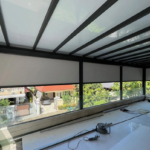When it comes to keeping a comfortable living environment, having the right heating, ventilation, and air conditioning (HVAC) system is essential. Your HVAC system not only regulates the temperature inside your home but also helps remove contaminants and ensures good air quality. Choosing the right system can be challenging, especially with so many options available. This guide will help you make an informed decision and guide you through the HVAC installation process.
Determine Your Needs
Before you start browsing for an HVAC system, it’s crucial to assess your home’s specific requirements. Consider factors such as your residence’s square footage, insulation levels, and climate to determine the system’s required heating or cooling capacity. Consulting a professional for HVAC installation in Elmhurst can also provide expert assistance in determining your home’s needs. By ensuring that your HVAC system suits your particular requirements, you’ll save money by avoiding a unit that’s too big or small.
Evaluate Efficiency
Energy efficiency should be a top preference when choosing your HVAC system. Systems with higher efficiency ratings consume less electricity, which translates into lower energy bills and a decreased carbon footprint. Look for the Seasonal Energy Efficiency Ratio (SEER) and Heating Seasonal Performance Factor (HSPF) ratings on heat pump systems or the Annual Fuel Utilization Efficiency (AFUE) rating on gas furnaces. Higher ratings indicate a more energy-efficient system.
Choose the Right Type of System
There are several types of HVAC systems available, including:
- Central air conditioning and heating systems: These systems use ductwork to distribute conditioned air throughout your home. They are suitable for most residential applications and can be energy-efficient if properly designed and installed.
- Heat pumps: These systems are available in air-source and ground-source varieties and can be used to heat or cool your home, depending on the climate. Heat pumps are usually more energy-efficient than central HVAC systems, but they may not be suitable for extremely cold climates.
- Split systems: These typically consist of a central outdoor unit and an indoor air handler or furnace. They are usually quieter than other HVAC systems, but their efficiency is reduced when the outdoor temperature drops significantly.
Review Warranty and Maintenance
A good warranty is essential to protect your investment in your HVAC system. Typically, reputable manufacturers offer a 10-year warranty on parts and limited labor. Also, some companies may provide extended warranties on specific components or services. When comparing warranties, consider the length of coverage, what parts are included, and whether it’s transferable to future homeowners.
Regular maintenance is crucial to ensure your system’s optimal performance and prolong its lifespan. Before purchasing, inquire about the manufacturer’s recommended maintenance schedule and any available maintenance plans.
Seek Professional Assistance
Working with a licensed, reputable HVAC contractor can save you time and money by ensuring your system is designed and installed correctly. Ask for recommendations or search online reviews for HVAC contractors in your area. Collaborate with an expert who can guide you in selecting the right system and ensure a seamless HVAC installation made simple for your home.
To Wrap Up
Choosing the right HVAC system for your home is a critical decision that affects your comfort, energy bills, and the overall value of your property. By assessing your needs, evaluating efficiency, considering different system types, and seeking professional assistance, you can make an informed choice tailored to your requirements. Don’t hesitate to reach out to a professional HVAC installation provider to help determine the best system for your home. With the right HVAC system in place, you can enjoy a comfortable living environment all year round. Thank you for reading!

 Why “Safe” Neighborhoods Still Need Professional Security Assessments
Why “Safe” Neighborhoods Still Need Professional Security Assessments  Innovative Approaches to Workplace Safety Training
Innovative Approaches to Workplace Safety Training  How to Choose the Right Cleaning Products for Your Business
How to Choose the Right Cleaning Products for Your Business  Professional Kitchen Renovations: Quality Service in Central Coast
Professional Kitchen Renovations: Quality Service in Central Coast  Why Care and Protection Matter During Your Move
Why Care and Protection Matter During Your Move  Identifying Common House Spiders and How to Control Them
Identifying Common House Spiders and How to Control Them  URA outlines 99 year leasehold scale for Penridge Condo with 860 unit potential
URA outlines 99 year leasehold scale for Penridge Condo with 860 unit potential  Traditional Roller Blinds vs. Zip Blinds: Which Is Right for You?
Traditional Roller Blinds vs. Zip Blinds: Which Is Right for You?  Why Exterior Materials Are Important
Why Exterior Materials Are Important 